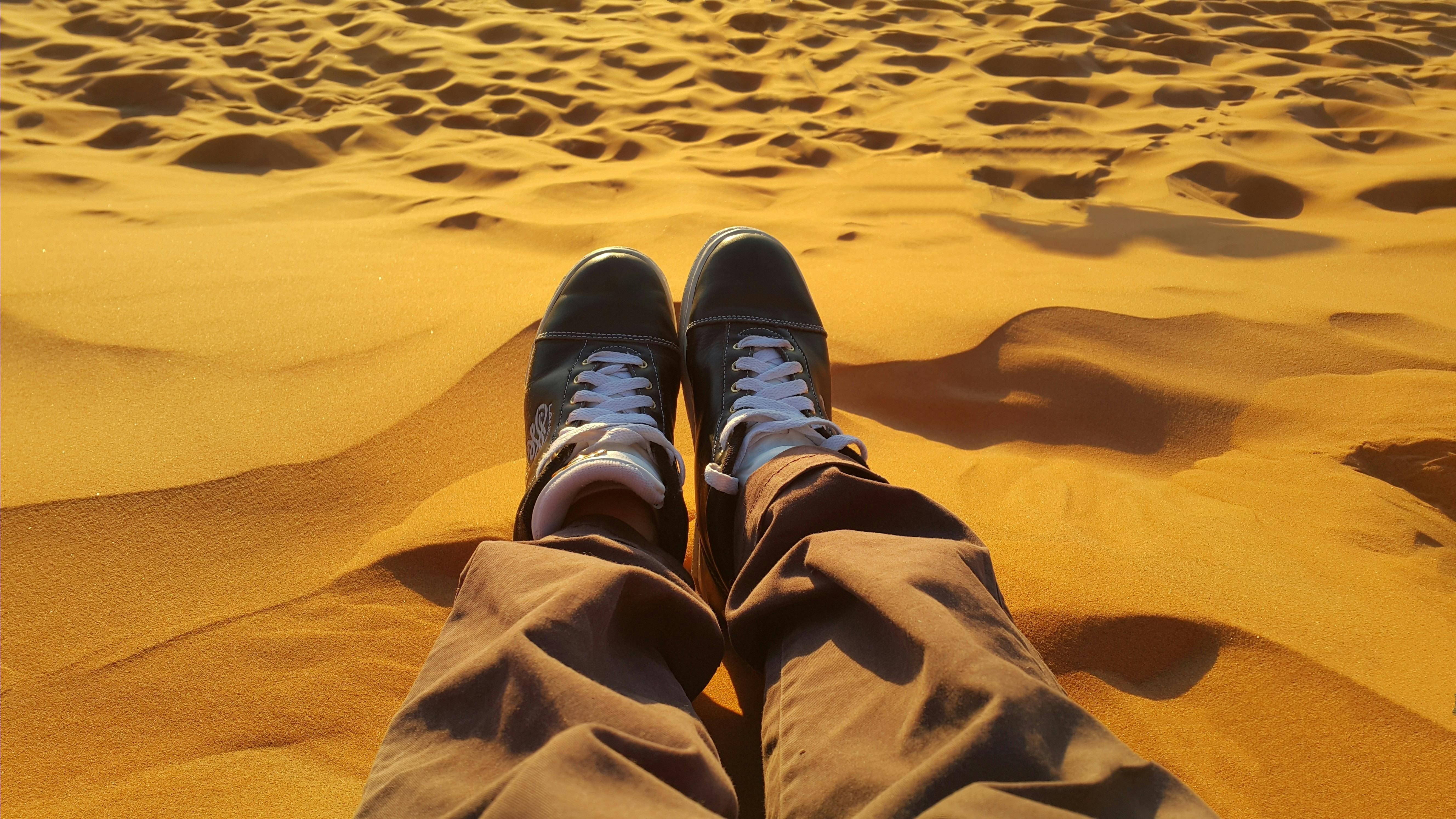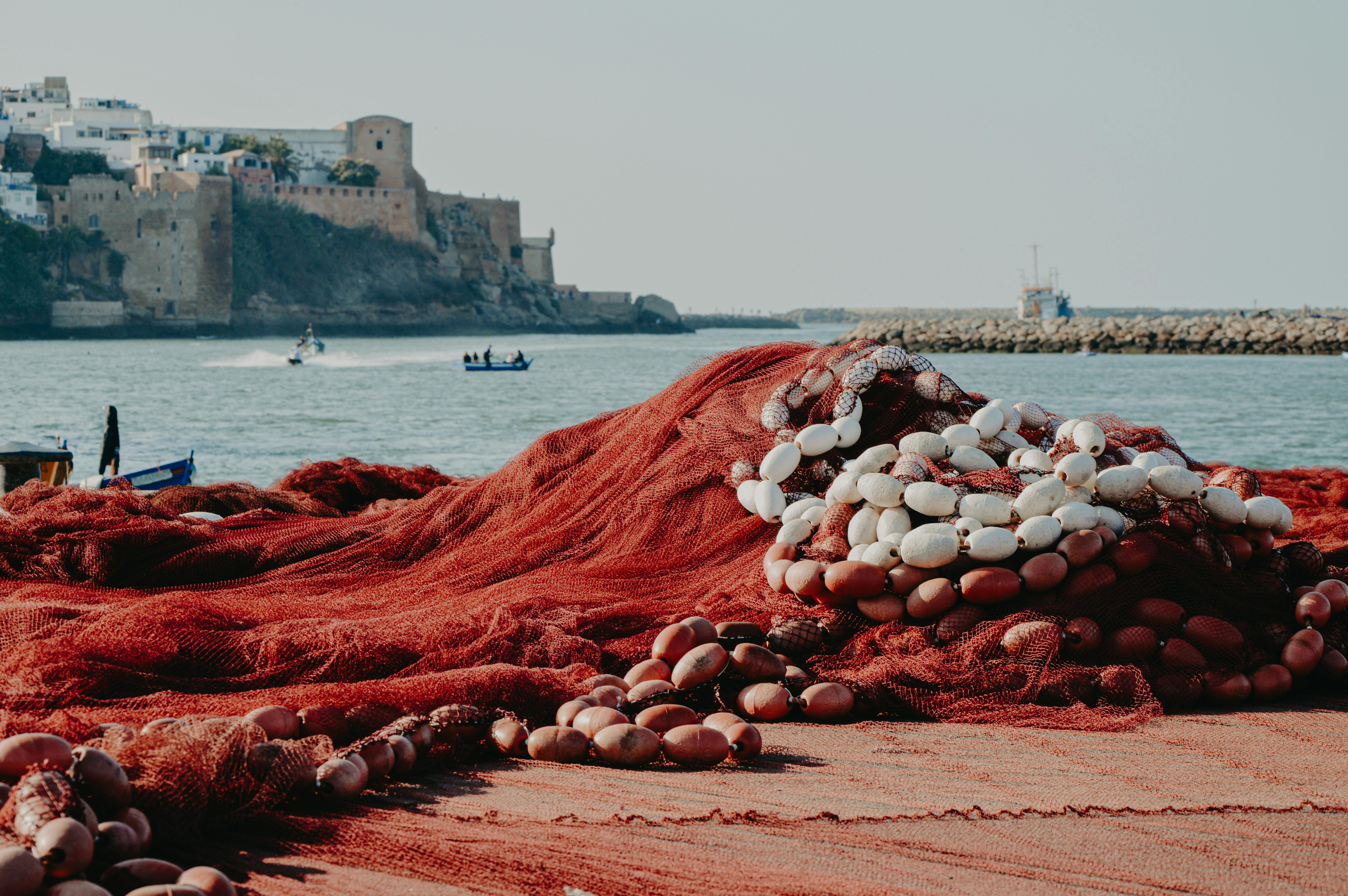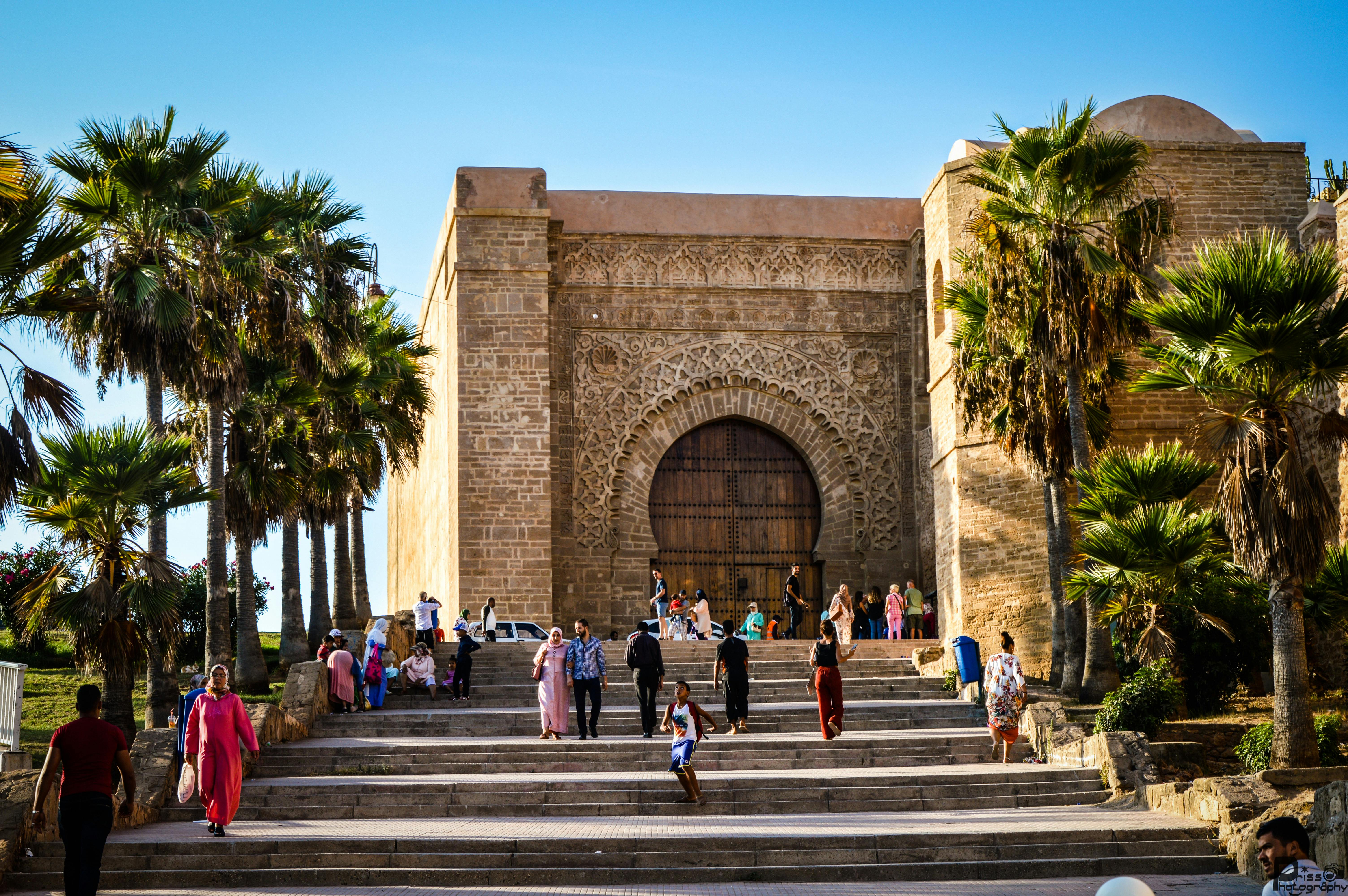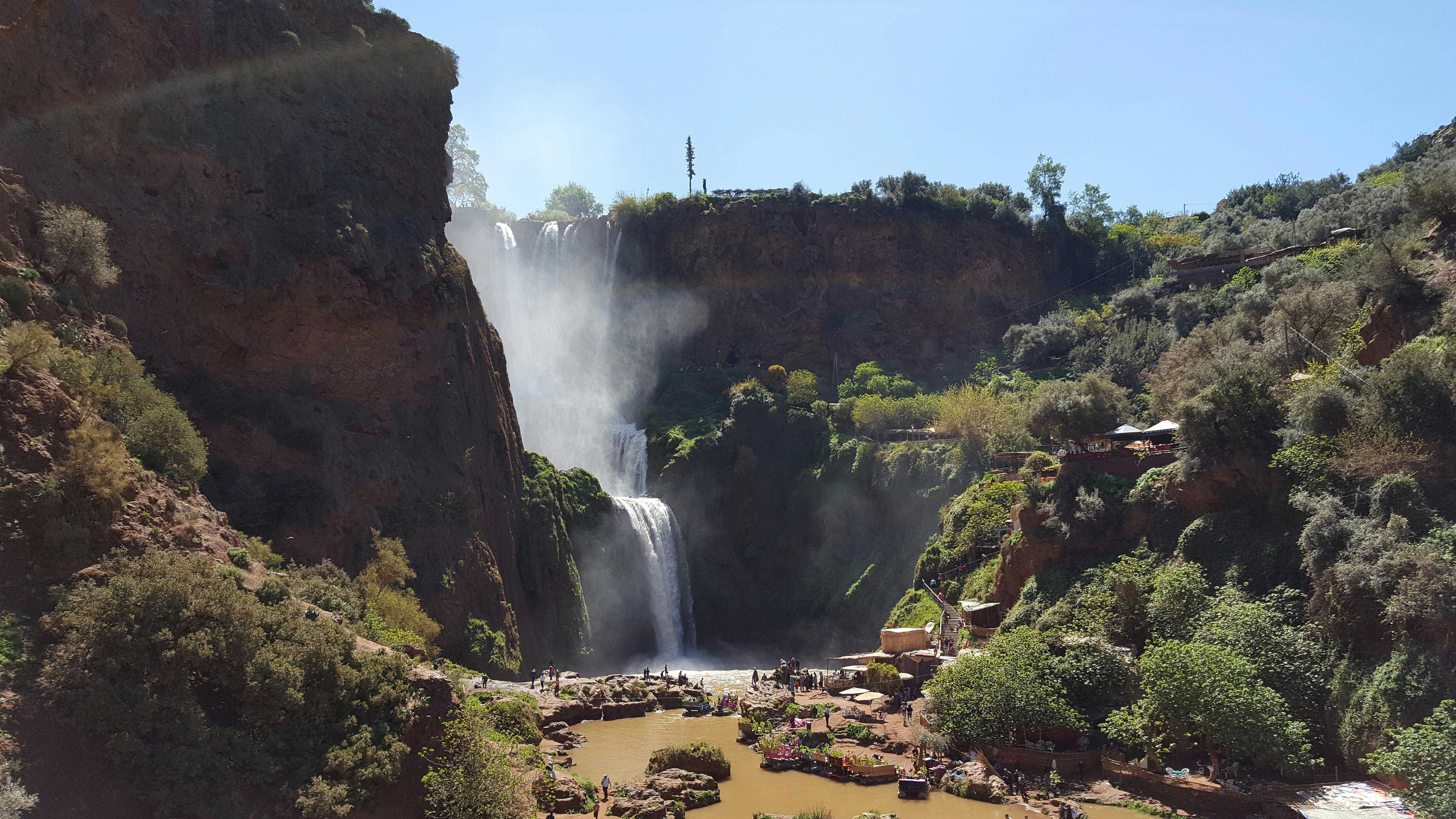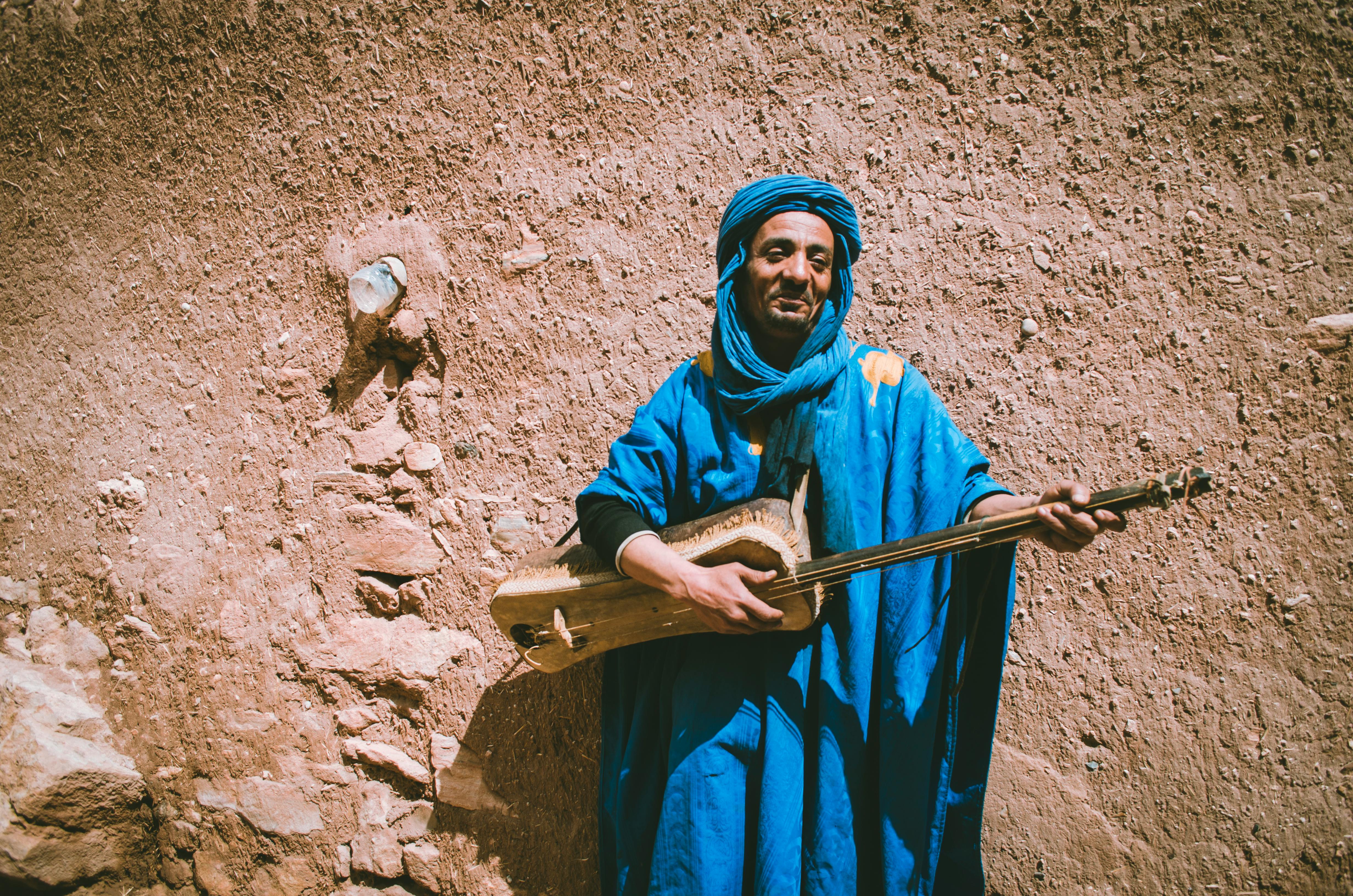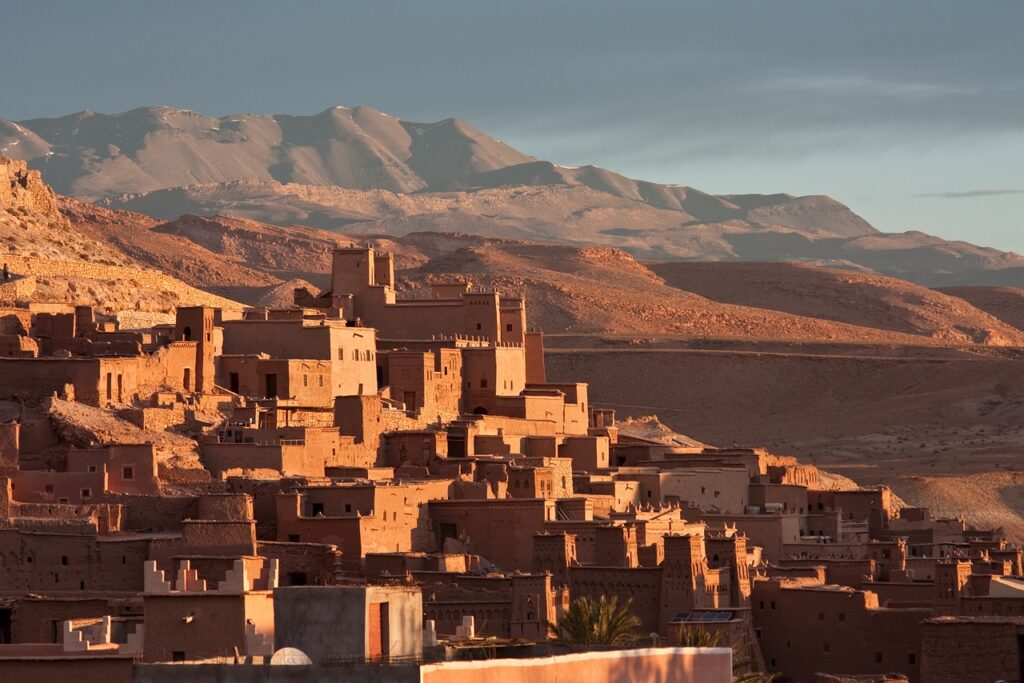The vibrant sounds and colors of Morocco’s ancient city enveloped me as I stepped off the bus in Marrakech. Smells of spices and fresh bread wafted through the air, enticing me to explore the winding alleys and bustling souks. With a backpack full of dreams and a wallet that was, shall we say, less than overflowing, I embarked on a journey to discover the magic of Morocco on a broke budget.
With its incredibly rich cultural heritage and beautiful landscapes, Morocco can sometimes be a tough destination for budget travelers. But, as I soon found out, it’s also a country that richly rewards those who are willing to go off the beaten path. Be it hiking in the Atlas Mountains or haggling for souvenirs in the medinas, every experience in Morocco is an opportunity to connect with the locals, dive into the culture, and create unforgettable memories.
Within this blog, I will tell you about all my travel stories and misfortunes experienced by a poor backer within Morocco. The search for cheap accommodation or delicious food from the street sellers, moving around the maze of culture and etiquette-this is really Morocco. Join me now in this journey through the center of one of the most captivating countries in the world, discovery and adventure combined.
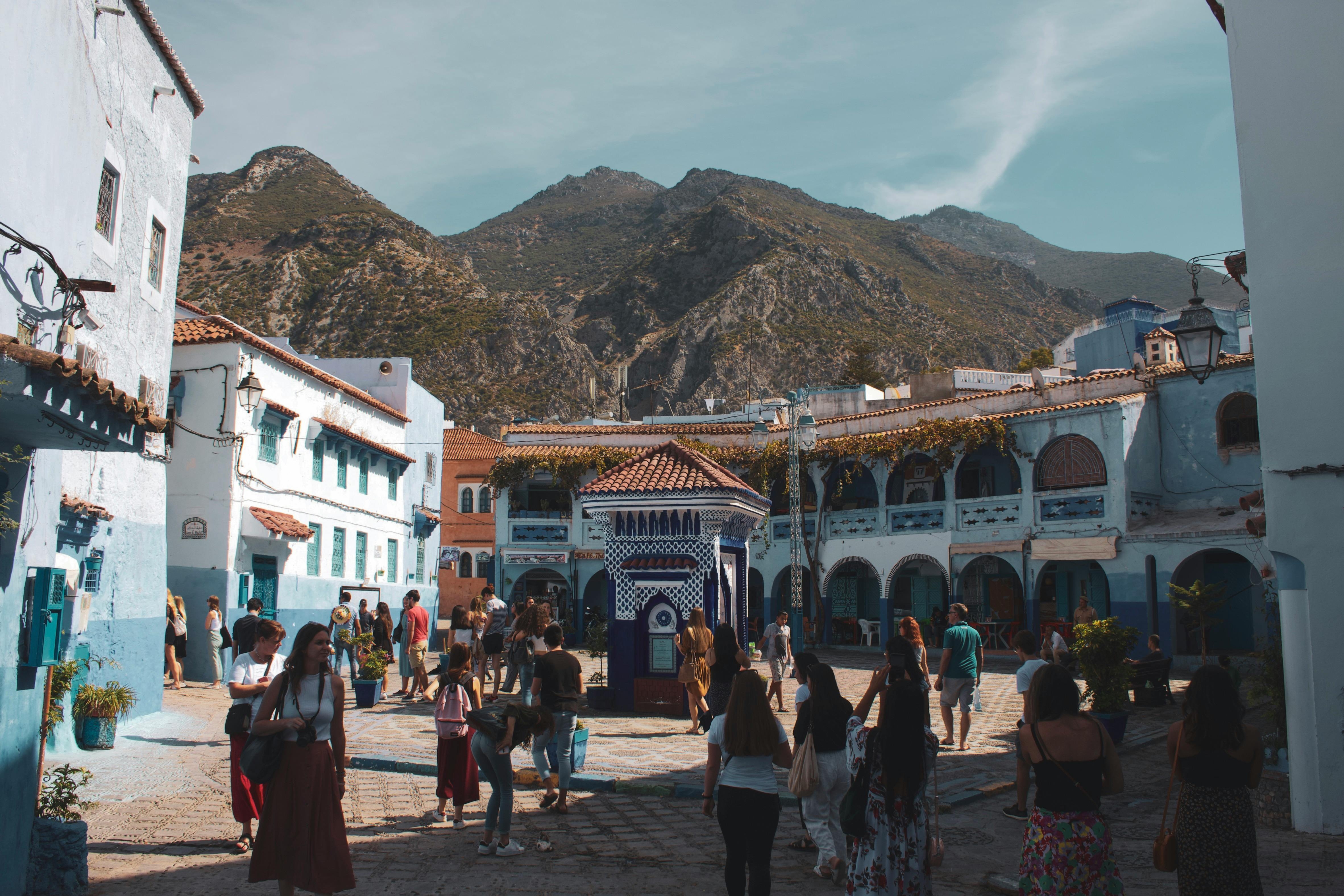
How to get there:
While flying is often the quickest way to get to Morocco, it’s not always the most affordable or adventurous option. In this blog post, we’ll explore how to get to Morocco using public transportation from its neighboring countries.
From Algeria
Morocco and Algeria share a long border, and there are several bus companies that operate daily services between major cities in both countries. One of the most popular routes is from Algiers to Casablanca, which takes around 24 hours. You can catch a bus from Algiers’ Mohammadia Bus Station to Casablanca’s Gare Routière, operated by companies like ETNH or Fretti. The journey costs around 1,500-2,000 Algerian dinars (approximately $11-$14 USD).
From Mauritania
Mauritania, Morocco’s southern neighbor, is a great starting point for an overland adventure. The most common route is from Nouakchott to Dakhla, which takes around 12 hours. You can catch a bus from Nouakchott’s Garage Zouzate to Dakhla’s Gare Routière, operated by companies like Maurentania Bus or Chinguitty Voyages. The journey costs around 5,000-6,000 Mauritanian ouguiyas (approximately $14-$17 USD).
From Western Sahara
Western Sahara, a disputed territory that borders Morocco to the south, is also connected to Morocco by public transportation. The most common route is from El Aaiún to Dakhla, which takes around 6 hours. You can catch a bus from El Aaiún’s Garage El Aaiún to Dakhla’s Gare Routière, operated by companies like Saharan Bus or El Aaiún Voyages. The journey costs around 200-300 Moroccan dirhams (approximately $22-$33 USD).
When to go:
In this guide, we’ll explore the best times to go broke backpacking in Morocco, including the pros and cons of each season.
Spring (March to May)
- Weather: Mild temperatures, ranging from 15°C to 25°C (59°F to 77°F).
- Pros: Fewer tourists, lower prices, and a more relaxed atmosphere.
- Cons: Some mountainous areas may still be cold, and the desert regions can be quite hot during the day.
Summer (June to August)
- Weather: Hot temperatures, often reaching 35°C to 40°C (95°F to 104°F).
- Pros: Longer days, warmer nights, and a vibrant festival scene.
- Cons: Peak tourist season, higher prices, and crowded popular destinations.
Autumn (September to November)
- Weather: Comfortable temperatures, ranging from 10°C to 25°C (50°F to 77°F).
- Pros: A pleasant climate, fewer tourists, and lower prices.
- Cons: Some attractions and businesses may be closed or operate on reduced hours.
Winter (December to February)
- Weather: Cool temperatures, ranging from 5°C to 15°C (41°F to 59°F).
- Pros: Low prices, fewer tourists, and a serene atmosphere.
- Cons: Chilly mornings and evenings, and some mountainous areas may be cold and snowy.
Ramadan and Eid al-Fitr
- Dates: Varying dates each year, usually in May or June.
- Pros: A unique cultural experience, delicious food, and a festive atmosphere.
- Cons: Some businesses and attractions may be closed or operate on reduced hours, and eating and drinking in public may be restricted during daylight hours.
Best Itineraries:
3-Day Itinerary: Marrakech Express
- Day 1: Explore Marrakech’s Medina, visit the famous Jemaa el-Fnaa square, and get lost in the souks.
- Day 2: Visit the Bahia Palace, the Majorelle Garden, and the Koutoubia Mosque.
- Day 3: Take a day trip to the Atlas Mountains, visit a Berber village, and enjoy a traditional lunch.
1-Week Itinerary: Northern Morocco Adventure
- Day 1-2: Explore Tangier’s Medina, visit the Kasbah, and take a stroll along the beach.
- Day 3-4: Take a bus to Chefchaouen, hike in the Rif Mountains, and enjoy the blue-painted town.
- Day 5-6: Visit the Roman ruins of Volubilis, explore the imperial city of Meknes, and take a bus to Fez.
- Day 7: Explore Fez’s Medina, visit the Al-Attarine Madrasa, and get lost in the narrow streets.
2-Week Itinerary: Southern Morocco Explorer
- Day 1-3: Explore Marrakech’s Medina, visit the famous Jemaa el-Fnaa square, and get lost in the souks.
- Day 4-6: Take a bus to Agadir, relax on the beach, and take a day trip to the nearby Paradise Valley.
- Day 7-9: Visit the fortified city of Taroudant, explore the old medina, and take a bus to Tafraout.
- Day 10-12: Hike in the Anti-Atlas Mountains, visit the painted rocks, and take a bus to Essaouira.
- Day 13-14: Explore Essaouira’s Medina, visit the Skalla de la Ville, and relax on the beach.
1-Month Itinerary: Morocco Grand Tour
- Week 1: Explore Marrakech’s Medina, visit the famous Jemaa el-Fnaa square, and get lost in the souks.
- Week 2: Take a bus to Fez, explore the Medina, visit the Al-Attarine Madrasa, and get lost in the narrow streets.
- Week 3: Visit the Roman ruins of Volubilis, explore the imperial city of Meknes, and take a bus to Chefchaouen.
- Week 4: Hike in the Rif Mountains, enjoy the blue-painted town, and take a bus to Tangier.
3-Month Itinerary: Morocco Off the Beaten Path
- Month 1: Explore the northern regions of Morocco, including Tangier, Chefchaouen, and the Rif Mountains.
- Month 2: Visit the imperial cities of Fez, Meknes, and Marrakech, and explore their ancient Medinas.
- Month 3: Head to southern Morocco, visit the fortified city of Taroudant, explore the old medina, and relax on the beach in Agadir.
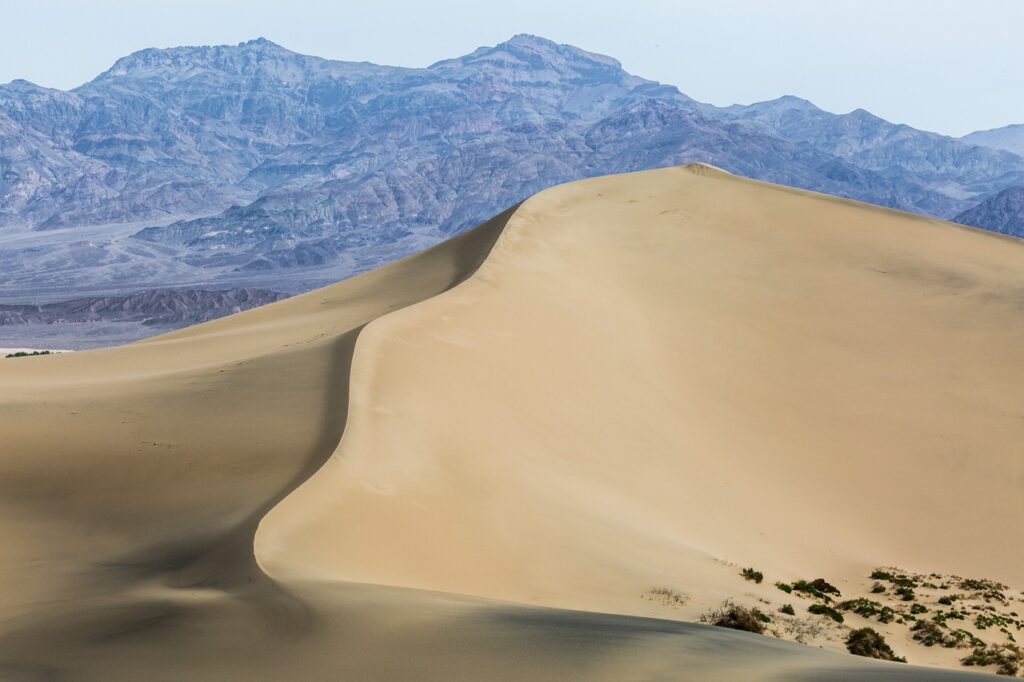
Transportation:
Morocco’s public transportation system is extensive and affordable, making it easy for travelers to get around without breaking the bank. From buses and trains to taxis and hitchhiking, this guide will cover everything you need to know to navigate Morocco’s public transportation system.
Buses
- Operators: Companies like CTM, Fes Bus, and Supratours operate bus services across Morocco.
- Routes: Buses connect major cities, towns, and villages, with frequent departures throughout the day.
- Fares: Prices vary depending on the route and operator, but expect to pay around 20-50 MAD ($2-$5 USD) for a short journey.
- Booking: Tickets can be purchased at bus stations or online in advance.
Trains
- Operator: ONCF (Office National des Chemins de Fer) operates Morocco’s train network.
- Routes: Trains connect major cities like Marrakech, Fez, Rabat, and Casablanca.
- Fares: Prices vary depending on the route and class, but expect to pay around 100-200 MAD ($10-$20 USD) for a short journey.
- Booking: Tickets can be purchased at train stations or online in advance.
Taxis
- Types: Grand Taxis (long-distance) and Petit Taxis (short-distance) are available.
- Fares: Prices vary depending on the route and type of taxi, but expect to pay around 50-100 MAD ($5-$10 USD) for a short journey.
- Booking: Taxis can be hailed on the street or booked in advance through a taxi company.
Hitchhiking
- Safety: Hitchhiking is generally safe in Morocco, but take necessary precautions, such as researching safe routes and trusting your instincts.
- Etiquette: Be respectful of local customs and traditions, and offer to pay for gas or share a meal with your driver.
- Popular routes: Hitchhiking is common on routes like Marrakech to Essaouira, Fez to Chefchaouen, and Tangier to Rabat.
Other Options
- Shared taxis: A cost-effective option for shorter journeys, where you share a taxi with other passengers.
- Private car and driver: A more expensive option for those who prefer a personalized service.
- Bicycle: A great way to explore Morocco’s countryside and cities, with many bike rental options available.
Tips and Precautions
- Stay safe: Be aware of your surroundings, keep valuables secure, and trust your instincts when interacting with strangers.
- Research: Plan your route in advance, research transportation options, and book tickets or accommodations as needed.
- Language: Arabic and French are widely spoken in Morocco, but many locals also speak English, especially in tourist areas.
- Respect local customs: Dress modestly, remove your shoes when entering mosques or homes, and respect Ramadan traditions.
Top things to do:
Marrakech
- Explore the Medina and get lost in the souks
- Visit the famous Jemaa el-Fnaa square and watch the street performers
- Relax in the Majorelle Garden
- Visit the Bahia Palace and the Koutoubia Mosque
- Take a day trip to the Atlas Mountains and visit a Berber village
- Explore the Menara Gardens and the Agdal Gardens
- Visit the Marrakech Museum and the Dar Si Said Museum
Fez
- Explore the ancient Medina and get lost in the narrow streets
- Visit the Al-Attarine Madrasa and the Al-Qarawiyyin University
- Explore the Dar Batha Museum and the Mellah (Jewish Quarter)
- Take a day trip to the nearby Roman ruins of Volubilis
- Visit the Fez Medina and the Fez Jdid (New Fez)
- Explore the Merinid Tombs and the Bab Bou Jeloud
Chefchaouen
- Hike in the Rif Mountains and enjoy the scenic views
- Explore the blue-painted town and get lost in the narrow streets
- Visit the Kasbah and the Grand Mosque
- Relax in the Plaza Uta el-Hammam and enjoy the local cuisine
- Take a day trip to the nearby Talassemtane National Park
- Visit the Chefchaouen Medina and the Chefchaouen Waterfall
Essaouira
- Explore the Medina and get lost in the narrow streets
- Visit the Skalla de la Ville and the Essaouira Ramparts
- Relax on the beach and enjoy the seafood
- Take a day trip to the nearby Diabat Village and the Essaouira National Park
- Visit the Essaouira Medina and the Essaouira Beach
- Explore the Argan oil cooperatives and the local markets
Tangier
- Explore the Medina and get lost in the narrow streets
- Visit the Kasbah and the Grand Mosque
- Relax on the beach and enjoy the seafood
- Take a day trip to the nearby Cape Spartel and the Hercules Cave
- Visit the Tangier Medina and the Tangier Beach
- Explore the Petit Socco and the Grand Socco
Agadir
- Relax on the beach and enjoy the seafood
- Visit the Kasbah and the Grand Mosque
- Take a day trip to the nearby Paradise Valley and the Imouzzer Waterfalls
- Explore the Souk El Had and the Agadir Marina
- Visit the Agadir Beach and the Agadir Medina
- Take a surfing or kitesurfing lesson
Merzouga
- Take a camel trek into the Erg Chebbi dunes and watch the sunset
- Spend the night in a Berber tent and enjoy traditional music and food
- Explore the nearby village of Merzouga and visit the Gnawa music museum
- Take a 4×4 tour into the desert and visit the nomadic tribes
- Visit the Merzouga Lake and the Merzouga Fossil Site
Rabat
- Explore the Medina and get lost in the narrow streets
- Visit the Kasbah of the Udayas and the Hassan Tower
- Relax in the Jardin d’Essais Botanique and enjoy the local cuisine
- Take a day trip to the nearby Roman ruins of Chellah and the Rabat Beach
- Visit the Rabat Medina and the Rabat Beach
- Explore the Mohammed V Mausoleum and the Royal Palace
Casablanca
- Visit the Hassan II Mosque and the Old Medina
- Relax in the Parc de la Ligue Arabe and enjoy the local cuisine
- Take a day trip to the nearby city of El Jadida and the Azemmour Beach
- Visit the Casablanca Medina and the Casablanca Beach
- Explore the Mohammed V Square and the United Nations Square
Ouarzazate
- Relax in the Ouarzazate palm grove and enjoy the local cuisine
- Visit the Kasbah Taourirt and the Ouarzazate Medina
- Explore the Atlas Studios and the CLA Studios
- Take a day trip to the nearby Aït Benhaddou and the Ouarzazate River
- Visit the Ouarzazate Lake and the Ouarzazate Fossil Site
Food:
Moroccan cuisine is a rich and diverse mix of Arabic, Berber, and Mediterranean flavors, with an emphasis on fresh ingredients, spices, and slow-cooked meats. As a poor backpacker, you will be delighted to find that Moroccan food is not only delicious but also affordable and available everywhere.
Street food is a staple in Morocco, and the vendors and markets offer a wide range of traditional dishes, from crispy fried doughnuts called “sfinge” to savory meat-filled pastries known as “b’stilla.” You can also find fresh fruits and vegetables, like juicy oranges, sweet dates, and crunchy carrots. Most street food vendors sell snacks and light meals like roasted nuts, dried fruits, and grilled meats.
Food stalls and restaurants are aplenty in the souks and medinas, with their filling and tasty meals. The most typical dish of all is, of course, the tagine, which is a sort of stew made with meat, vegetables, and dried fruits, prepared in a clay pot with a conical lid. You will also find a variety of couscous dishes, such as the traditional Friday lunch of steamed semolina flour topped with vegetables, meat, and sauce.
The cuisine is also famous for its rich and aromatic spices, which include cumin, coriander, cinnamon, and ginger. These spices are commonly mixed with olive oil, garlic, and lemon juice in a sauce that is both flavorful and aromatic. You’ll also come across a variety of sweet pastries and desserts, including the famous “makroud,” a date-filled pastry made with semolina flour and honey.
As a budget traveler, you are in luck because eating out in Morocco is quite cheap. You will get a good meal from a local restaurant or a food stall for around 20-50 MAD ($2-$5 USD). Moreover, many riads and hostels provide free breakfast that normally includes different types of bread, pastries, and coffee or tea.
As for the drinking aspect, Morocco takes a very strict policy in terms of liquor, and public drinking is generally frowned upon. You’ll find alcohol in some areas that cater to tourists and also in larger cities, with many restaurants and bars offering local beers and wine. Alternatively, you can go for some delicious and refreshing drinks, like mint tea, orange juice, or an avocado smoothie.
Besides the delicious food and drinks, Morocco is famous for its markets and souks, which are vibrant. Such busy markets are selling everything: from fresh vegetables and fruits up to spices, textiles, and handicrafts. As a poor backpacker, you’ll love browsing through the stalls and finding unique souvenirs and gifts.
When you go to the markets, make sure you haggle; they expect it in the Moroccan culture. The final prices are never the exact value shown, so be sure not to be afraid to walk away if you do not agree with the price of anything, and show good morals and politeness whenever approaching or talking to a vendor.
Moroccan cuisine indeed tells a lot about the cultural heritage of the country, standing at the crossroads of Africa, Europe, and the Middle East. If you are a broke backpacker, then you will easily get enough opportunities to try the local food from streets, markets, restaurants, and cafes. Moroccan cuisine boasts a certain flair of fresh ingredients, aromatic spices, and meats cooked with much time, which shall delight even the most delicate palate.
From the bustling streets of Marrakech to the relaxed beaches of Essaouira and the hike in the Atlas Mountains, Morocco has something for every kind of traveler. So why not come and discover the flavors, sights, and sounds of this incredible country for yourself?
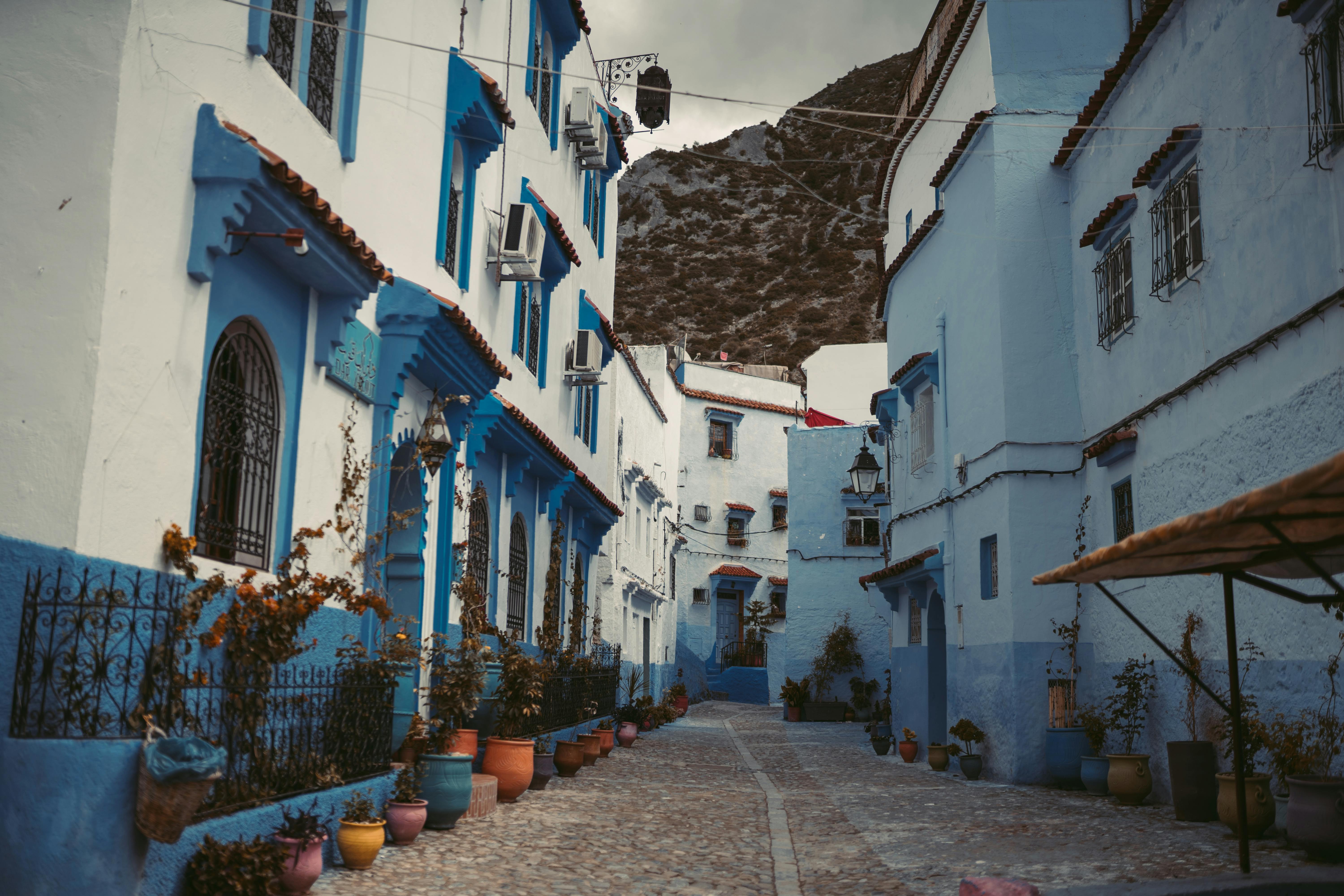
Culture:
Morocco is a country with a rich and diverse cultural heritage, standing at the crossroads of Africa, Europe, and the Middle East. Its unique blend of Arabic, Berber, and Mediterranean influences can be seen in its vibrant arts scene, stunning architecture, and warm hospitality.
The essence of Moroccan culture is based on hospitality, which has deep roots in the traditions and customs of the country. Visitors are often welcomed with a warm smile, sweet mint tea, and offerings of food and shelter. This welcoming attitude has been deeply rooted in the country through its Islamic heritage, with an emphasis on generosity, kindness, and respect to guests.
The culture of Morocco is also greatly influenced by the Berber heritage, which traces its roots back thousands of years. The Berbers, generally referred to as Amazigh, are the first inhabitants of Morocco. Berber, or Amazigh, is a common language, along with its customs and traditions, which survives in the modern-day cultural life of Morocco. Many Moroccans proudly identify as Berbers; the country’s Berber heritage is honored through music, dance, and art.
The outstanding thing about Moroccan culture is the amazing architecture that reflects the country’s rich history and cultural diversity. From intricately designed tile work and ornate arches in Alhambra-inspired palaces to colorful souks and bustling medinas, Morocco’s architecture is a feast for the eyes. From the Koutoubia Mosque in Marrakech to the Hassan II Mosque in Casablanca, the country’s most renowned architectural landmarks reflect upon the rich cultural heritage of Morocco and how the country has blended so many styles and influences over the years.
Moroccan culture is also renowned for its dynamic arts: music, dance, and visual arts. Traditional Moroccan music includes Andalusian classical music and Gnawa folk music, which are considered very beautiful and emotionally deep. Moroccan dance, including the traditional Berber dances, is also an integral part of the country’s cultural heritage. Besides, Moroccan visual arts, such as painting, sculpture, and textiles, are highly valued for their beauty and craftsmanship.
In Morocco, the family and community are highly valued, and the social bonds are strong. Most often, the closeness of the communities centers on the local mosque, where people come to pray, socialize, and engage in other activities with the community. Moroccans also place a high regard on respect for elders, tradition, and authority, as reflected in customs and etiquette.
Moroccan culture is also greatly influenced by its Islamic heritage, which plays an important role in the daily life of the country. The call to prayer, echoing from the minarets of the mosques five times a day, is part of Moroccan culture, and many Moroccans observe the Islamic holy days and festivals, such as Ramadan and Eid al-Fitr.
Despite its strong cultural traditions, Morocco is a modern and rapidly changing country; it boasts a growing economy and an increasingly globalized culture. The youth of the country are especially embracing modernity and globalization, while still holding on to strong cultural identity and tradition.
Besides its rich cultural heritage, Morocco is also geographically very diverse, boasting a range of landscapes and ecosystems that stretch from the snow-capped Atlas Mountains to the arid Sahara Desert. Its natural beauty makes it an attractive country to tourists, and many Moroccans take pride in the uniqueness and variety of their country’s landscapes.
Moroccan cuisine is another important attribute of the culture of this country, having rich and aromatic flavors due to the strategic location at the junction of Africa, Europe, and the Middle East. Traditional Moroccan food items, like tagine, couscous, and harira, are great delicacies and nutritious, which are usually prepared on any occasion or social gathering.
In Morocco, “asabiya” or community is a cherished concept and social bonds are strong. Most communities in Morocco are tight-knit, often with the local mosque as the center where people meet to pray, hold social events, and participate in community activities. Moroccans also have a strong regard for respect towards elders, tradition, and authority, which is reflected in customs and etiquette.
Moroccan culture is also proud of its rich and colorful folklore, which includes stories, legends, and myths passed down through generations. The folklore of the country is highly valued for both its cultural significance and entertainment value, hence mostly performed during social gatherings and special occasions.
In conclusion, Moroccan culture is a rich tapestry of influences and traditions combined. From the marvelous architecture to the pulsating arts scene, the close family ties, and Islamic influences, Morocco is one of those countries whose history still has a deep grip, yet it is still in sync with the modern world for all its challenges and opportunities.
Accommodations:
As a broke backpacker, Morocco is a haven for those seeking a different, crazy, and amazing experience in hostels. While many travelers opt for luxury and comfort, the cheapest options in Morocco often provide the most unforgettable experiences.
When booking a hostel in Morocco, it’s best to throw caution to the wind and go for the cheapest option available. These hostels are behind the narrow alleys and teeming medinas that will expose you to the local, real way of Moroccan life. You will experience the sights, sounds, and smells of the local culture-from the call to prayer echoing from the nearby mosque to the aroma of freshly baked bread wafting from the local bakery.
The cheapest hostels in Morocco are often family-run affairs, with the owner’s children and relatives pitching in to help with the daily chores. This creates a warm and welcoming atmosphere, where guests are treated like part of the family. You’ll often find yourself sharing meals with the owner’s family, learning about their customs and traditions, and even participating in impromptu jam sessions with the owner’s musical relatives.
Of course, the cheapest hostels in Morocco are not for the faint of heart. You can expect to share a cramped and dimly lit dorm room with a dozen or so fellow travelers, with a single bathroom and shower to go around. But for those who are willing to rough it, the rewards are well worth the sacrifices.
One of the most unique aspects of staying in a cheap hostel in Morocco is the opportunity to meet and mingle with fellow travelers from all over the world. These hostels often attract a diverse and eclectic crowd, from gap-year students and backpackers to artists and musicians. You’ll share your stories and laugh with fellow travelers of all backgrounds, creating a sense of community and camaraderie you probably won’t find in fancier digs. In addition to the social benefits, staying in a cheap hostel in Morocco also affords you the opportunity to experience the culture of the land on which you’re sleeping. You’ll be living and breathing the sights, the sounds, and the smells of Morocco-from the hustle and bustle of its vibrant markets and souks to the serenity of mosques and peaceful gardens. The money you save on accommodations means you’ll have plenty of cash to explore the local cuisine, try your hand at haggling in the markets, and take in the stunning natural beauty of the Moroccan landscape.
As you wander through the serpentine streets and alleys of ancient medinas of Morocco, you will quickly appreciate the peculiar charm and character inherent in this country’s hostels at very reasonable rates. From colorful tile work to more detailed architecture, a bustling atmosphere, and hearty welcomes, hostels are one representation of Morocco’s culture and heritage.
So, if you’re a broke backpacker looking for something different, crazy, and amazing in Morocco, don’t be afraid to book the cheapest hostel option available. You never know what unforgettable experiences and lifelong memories you might create along the way. Whether you are a seasoned traveler or just starting your journey into the world of backpacking, Morocco’s cheap hostels promise an adventure that you will never forget.
As you settle into your new surroundings and begin to explore the local area, you’ll start to notice the little things that make Morocco’s cheap hostels so special. From the friendly owner who welcomes you with a warm smile and a cup of sweet mint tea, to the lively atmosphere and sense of community that pervades every aspect of hostel life, you’ll begin to feel like you’re part of something truly special.
Yet, despite the numerous charms and attractions of cheap hostels in Morocco, they still remain a little under wraps. While many tourists like staying in more posh hotels, the cheapest hostels in Morocco offer an unparalleled experience that is hard to find elsewhere.
So, if you’re looking for an immersive and unforgettable Morocco, make sure to check cheap hostels in the country, for they offer warm hospitality, a lively atmosphere, and unbeatable prices, which makes them perfect for both broke backpackers and adventurous travelers in general.
Nightlife:
The nightlife in Morocco is a unique and fascinating blend of traditional and modern influences. As the sun sets over the bustling medinas and vibrant cities, the nightlife scene comes alive with a mesmerizing array of sounds, sights, and experiences.
From the very first moment you go out into the evening air, you will be enveloped in the infectious energy of Moroccan nightlife. The streets come alive with laughter and music as locals and travelers alike get together to enjoy the warm summer evenings and vibrant atmosphere.
Winding your way through the crowded streets and alleys, you’ll pass by a dizzying selection of nightlife. From cozy bars and clubs to sprawling outdoor parties and festivals, you can find anything to suit almost any taste or style.
Then, of course, there are the very unique influences and combination of tradition and modernity that shape Morocco’s night out. You might find yourself at a sleek, modern cocktail bar, only to then be enveloped in an atmospheric barrage of traditional Moroccan music accompanied by fragrant wafts of incense.
As the night wears on, the energy and excitement of the nightlife scene only grow stronger. You might find yourself dancing the night away in a crowded club or having a relaxed evening of live music and conversation in a cozy bar.
Warm, hospitable, and infectiously energetic, Morocco’s nightlife is a happening thing from one end of the country to the other. Whether you are a party animal or just want to have a laid-back evening out, Morocco’s nightlife scene has something for everyone.
With vibrant cities and towns to be found almost everywhere you travel through this country, your appreciation will begin to focus more specifically on the varied characters of its nightscapes-from busy Marrakech down to laid-back and coastal Essaouira, with unique personalities across towns and cities alike.
As the night wears on, and the music and laughter fade into the distance, you’ll be left with memories of an unforgettable night out in Morocco. Whether you’re a seasoned traveler or just starting out on your adventures, Morocco’s nightlife scene is sure to leave you with a lasting impression of this incredible country.
As you settle into your surroundings and begin to venture out into the local nightlife, you will notice the little things that make Morocco’s nightlife so special. From the warm smiles and inviting gestures of locals to the infectious energy and excitement of the nightlife scene, you will begin to feel like a part of something truly unique and special.
Yet, for all the charms and attractions, Morocco’s nightlife has remained relatively incognito. While most tourists will prefer more familiar surroundings, the kind they had at home or during trips to other countries, Morocco is a country with nightlife waiting to happen.
As you delve deeper into the world of Morocco’s nightlife, you’ll begin to appreciate the many different facets and flavors that make it so special. From the traditional Gnawa music and dance of the southern regions to the modern, electronic beats of the big cities, Morocco’s nightlife scene is a true reflection of the country’s rich cultural diversity.
And then, of course, there is the food. Moroccan cuisine is famous for its rich, aromatic flavors and its incredible variety, and the country’s nightlife scene is no exception. From the spicy, savory flavors of traditional Moroccan street food to the sweet, indulgent treats of the modern cafes and bars, Morocco’s nightlife scene is a true culinary adventure.
As the night wears on and the music and laughter fade into the distance, you’ll be left with memories of an unforgettable night out in Morocco. Whether you are a seasoned traveler or just starting out on your adventures, Morocco’s nightlife scene is sure to leave you with a lasting impression of this incredible country.
So, if you’re looking for a nightlife experience that’s truly one-of-a-kind, make sure to check out Morocco’s vibrant and infectious nightlife scene. With its unique blend of traditional and modern influences, its warm and welcoming locals, and its unforgettable energy and excitement, Morocco’s nightlife scene is surely one to leave you with lifetime memories.
As you explore the country’s vibrant cities and towns, you’ll begin to appreciate the many different facets and flavors that make Morocco’s nightlife scene so special. From the traditional, cultural events of the rural regions to the modern, electronic beats of the big cities, Morocco’s nightlife scene is a true reflection of the country’s rich cultural diversity.
And yet, for all the charms and attractions that can be found in Morocco’s nightlife scene, it is something of a hidden gem. Many travelers bypass Morocco’s nightlife for more familiar and often touristic options elsewhere; Morocco’s nightlife is in its own class, waiting to be discovered.
So why not come and experience it for yourself? With its warm and welcoming locals, its incredible cultural diversity, and its unforgettable energy and excitement, Morocco’s nightlife scene is sure to leave you with memories that will last a lifetime.
Backpacking Morocco costs:
Daily Budget Breakdown:
- Accommodation: 50-100 MAD ($5-10 USD) per night for a dorm bed in a budget hostel
- Food: 20-50 MAD ($2-5 USD) per meal for street food or cheap restaurants
- Transportation: 10-20 MAD ($1-2 USD) per ride for public transportation, or 50-100 MAD ($5-10 USD) per day for a rental bike
- Attractions: 10-20 MAD ($1-2 USD) per person for entry fees to historical sites and museums
- Miscellaneous: 20-50 MAD ($2-5 USD) per day for snacks, drinks, and other incidentals
Total daily budget: 100-200 MAD ($10-20 USD)
Weekly Budget Breakdown:
- Accommodation: 700-1,400 MAD ($70-140 USD) per week for a dorm bed in a budget hostel
- Food: 1,400-2,800 MAD ($140-280 USD) per week for street food or cheap restaurants
- Transportation: 700-1,400 MAD ($70-140 USD) per week for public transportation, or 3,500-7,000 MAD ($350-700 USD) per week for a rental bike
- Attractions: 700-1,400 MAD ($70-140 USD) per week for entry fees to historical sites and museums
- Miscellaneous: 1,400-2,800 MAD ($140-280 USD) per week for snacks, drinks, and other incidentals
Total weekly budget: 5,200-10,400 MAD ($520-1,040 USD)
Note: These budget breakdowns are extremely rough and can vary greatly depending on your specific travel style and preferences. Additionally, prices can fluctuate depending on the time of year and location.
Conclusion:
As you reach the end of your Morocco journey, it is almost a given that you reflect on the amazing experiences you’ve had and unforgettable memories you have made. From the chaotic streets of Marrakech to the laid-back beaches of Essaouira, Morocco will be a country that amazes you at every corner-be it the beauty, culture, or people.
If you are a broke backpacker, then you may have thought the worst about how to go traveling in Morocco; actually, this great country is capable of offering something for any traveler and for any budget. From the very deliciously affordable street food to the extremely friendly and cheap hostels, Morocco is a country where even the most budget-conscious traveler can afford.
Of course, traveling through Morocco on a budget does entail a certain degree of flexibility and adaptability. You’ll need to be willing to try new things, to take risks, and to step outside of your comfort zone. But if you’re willing to do so, you’ll find that Morocco is a country that will reward you in ways that you never could have imagined.
So, if you are thinking of traveling through Morocco on a budget, don’t let fear or uncertainty hold you back. With its rich culture, its stunning landscapes, and its warm and welcoming people, Morocco is a country that’s sure to leave you with memories to last a lifetime.
